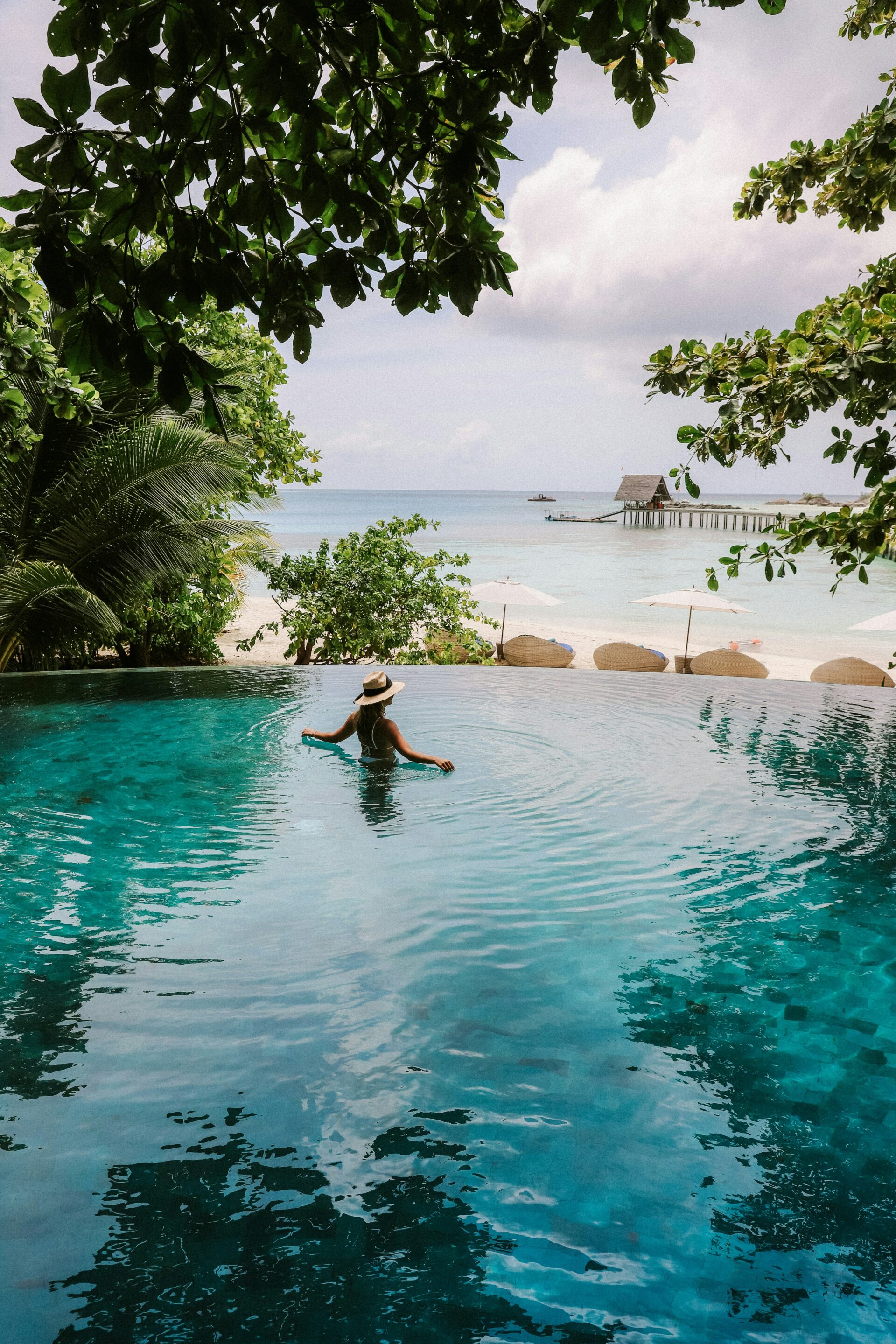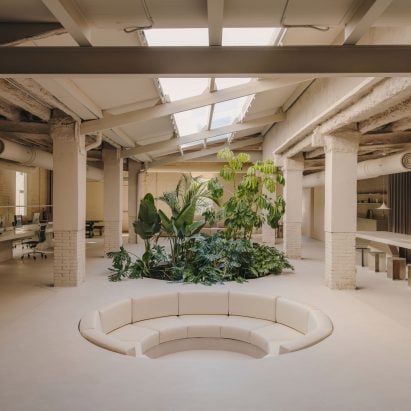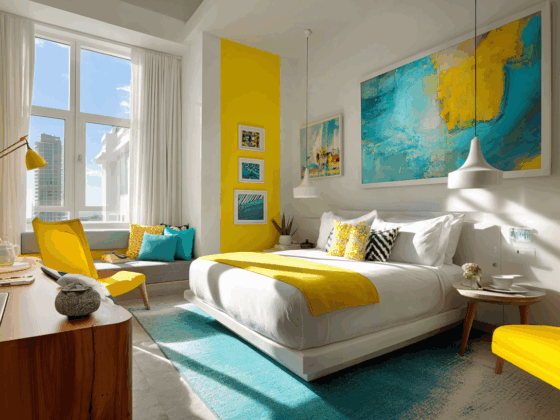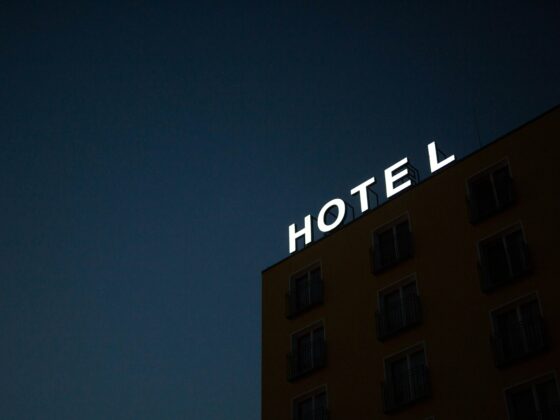Luxury consumption in China is undergoing a remarkable transformation, driven by younger, more dynamic consumers and evolving preferences that go beyond traditional notions of wealth display. This shift is particularly evident in the hospitality sector, where luxury hotels now cater to a deeper desire for sensory and emotional experiences. Despite this growing demand, however, research to date has shed little light on how sensory stimulation shapes luxury hotel experiences or how cultural factors influence consumers’ responses to luxury. Working with a co-author, Professor Kam Hung and Professor Cathy Hsu of the School of Hotel and Tourism Management (SHTM) at The Hong Kong Polytechnic University (PolyU) explore the multi-sensory dimensions of luxury consumption. Their findings offer guidance for hoteliers seeking to craft meaningful and memorable experiences for their guests.
Luxury spending is on the rise in China, which is one of the world’s largest luxury markets. Its evolution is marked by a growing appetite for high-end goods amongst the younger generation and diverse consumer segments with dynamic preferences. Luxury consumption is not static
, say the authors. Chinese consumers display a growing attention to décor, leisure, and dining experiences, timeless and chic items, as well as experiential luxury and personalised services.
These trends have profoundly influenced the hospitality industry, given Chinese consumers’ growing interest in luxury travel and hotels’ potential to offer indulgent experiences. Luxury hotels provide more than high-end facilities to serve guests’ functional needs
, the researchers tell us. These establishments seek to fulfil visitors’ social, cultural, and emotional needs via sensory stimulation.
However, we still know too little about how hotel offerings can enable such connections between customers and hotels. To date, the theory most frequently used to study luxury hotel experiences has been that of conspicuous consumption – purchasing high-end goods or services to display one’s wealth, prestige or social status. Yet luxury consumption is increasingly understood as a complex construct with multiple dimensions, such as self-actualisation, transformation, sustainability, escapism, hedonic value and authenticity.
Among these new dimensions of luxury accommodation
, say the researchers, all relate to the exclusive moment when one can sense or feel oneself
. It is thus important to examine the multi-sensory modalities of hotel offerings to provide a holistic picture of the luxury hospitality experience and its underlying mechanisms – with important implications for marketers and hoteliers. After all, as the authors note, customers’ feelings about luxury purchases are vital for deep and enduring person–brand links
.
In addition, the researchers note, few studies have explored luxury from the cultural perspective
. For example, disparities exist between Chinese and Western luxury consumers, with the former tending to be younger and the latter more individualistic. However, trends are quick to evolve. As China develops socioeconomically
, warn the researchers, scholars may need to reconsider the attributes of modern Chinese society rather than relying on presumptions when studying experience consumption
.
Together, these research gaps have created a larger lacuna in understanding. Chinese individuals’ perceptions of the luxury hospitality experience in connection with hotel offerings that stimulate such experiences remain unexplored, especially from a sensory-stimulating standpoint
, explain the authors. Hoteliers may not realise how guests view luxury and have experiences with hotel offerings.
Seeking to fill these gaps and generate actionable insights for hotel practitioners, the researchers adopted an innovative mental imagery perspective to explore Chinese consumers’ sensory experiences in luxury hotels. What type of sensory stimulation from luxury hotel offerings might define Chinese consumers’ experiences?
they asked. How do Chinese consumers perceive experiential consumption in luxury hotels?
Mental imagery afforded a novel lens through which to address these questions. Examples […] in daily life include daydreaming
, the authors explain. This ubiquitous mental event enables people to re-experience the past or to envision the future.
It thus has an important part to play in consumer decision-making and behaviour. – a field in which it has been extensively studied. Surprisingly, however, mental imagery has received little attention in the hotel context, even though customers often “encounter” hotels for the first time through their imaginations.
To capture this important construct, the researchers adopted the Zaltman metaphor elicitation technique (ZMET), which uncovers information that cannot be easily expressed in words (i.e. using visual and sensory images). This approach is well suited to exploring consumers’ multisensory experiences during luxury hotel stays
, the authors note. Using ZMET, they interviewed 16 participants who had either stayed or engaged in a consumption experience at an upscale hotel within the previous 12 months.
Before the interviews, the participants were asked to choose photos depicting their most memorable luxury experiences at hotels and their reactions to these experiences. During the interviews, they were invited to describe the feelings tied to these images; deconstruct the sensory elements of taste, touch, sound, smell and sight; craft visual stories of their ideal stay; and create mental maps to illustrate the key aspects of their experiences.
Meticulous analysis of the interview data – both verbal and non-verbal – revealed three categories of experiences described by the participants: supportive, personal/social and affective. Supportive experiences encompassed hotel guests’ direct experiences drawn from sensory interactions amid exclusive services, spectacular views, dining experiences, artistic décor, hotel ambience, large spaces, and facilities
, the researchers report.
These supportive experiences in turn prompted personal/social experiences such as social connections in situations like family gatherings and “me time” while alone. Affective experiences manifested from personal/social experiences
, the researchers add. Participants reported feeling comfortable, relaxed, happy, peaceful, healed and prestigious.
In terms of supportive experiences, exclusive services such as customised complimentary gifts – representing extraordinary service quality rarely found in low-end hotels – made the guests feel happy, healed, respected and more. Exquisite dining experiences were a source of comfort and relaxation, and large spaces also afforded a sense of privacy.
Turning to personal/social experiences, guests felt that the cleanliness of luxury hotels provided a safe environment for their children, while others relied on luxury hotels to provide a comfortable experience for senior family members. Some of the participants valued the opportunity to enjoy “me time” and “temporarily escape from the everyday” while travelling alone.
Feeling relaxed was the most common affective experience among the luxury hotel guests, triggered by spectacular views, ambience and exclusive services. Happiness came second, prompted by the senses of taste and smell, followed by comfort, which was usually connected with smell and touch. Interestingly, feeling prestigious was the least frequently reported affective experience, inconsistent with the “conspicuous consumption” theory of luxury purchasing.
With the rise of luxury consumption in China, this study provides much-needed insights into Chinese consumers’ luxury experiences in hotel settings via mental imagery, accounting for multiple sensory modalities and using both verbal and nonverbal data. The findings provide solid evidence of the interdependence of experience constructs in high-end hotel settings. Put simply, consumption experiences evolve out of one another
, the researchers tell us.
Together, these findings have important implications for the luxury hotel sector, in China and beyond. When marketing experiential products,
advise the authors, practitioners should view consumers as emotional beings to create pleasant experiences
. The top three experience stimulators in this study were exclusive services, facilities and artistic décor, each of which should be prioritised. As exclusive services were the most important trigger of guests’ happiness, luxury hotels should strive to go “above and beyond” to offer an exemplary service.
Kam Hung, Cathy H.C. Hsu and Xiaotao Yang (2024). Constructing a Sensory Model of Chinese Luxury Hotel Experiences from Mental Imagery Perspective. Journal of Travel & Tourism Marketing, Vol. 41, Issue 6, pp. 791–810.
About PolyU School of Hotel and Tourism Management
For more than four decades, the School of Hotel and Tourism Management (SHTM) of The Hong Kong Polytechnic University has refined a distinctive vision of hospitality and tourism education and become a world-leading hotel and tourism school. Ranked No. 1 in the world in the “Hospitality and Tourism Management” category in ShanghaiRanking’s Global Ranking of Academic Subjects 2024 for the eighth consecutive year; placed No. 1 globally in the “Commerce, Management, Tourism and Services” category in the University Ranking by Academic Performance in 2023/2024 for seven years in a row; rated No. 1 in the world in the “Hospitality, Leisure, Sport & Tourism” subject area by the CWUR Rankings by Subject 2017; and ranked No. 1 in Asia in the “Hospitality and Leisure Management” subject area in the QS World University Rankings by Subject 2025, the SHTM is a symbol of excellence in the field, exemplifying its motto of Leading Hospitality and Tourism.
The School is driven by the need to serve its industry and academic communities through the advancement of education and dissemination of knowledge. With a strong international team of over 90 faculty members from 21 countries and regions around the world, the SHTM offers programmes at levels ranging from undergraduate to doctoral degrees. Through Hotel ICON, the School’s groundbreaking teaching and research hotel and a vital aspect of its paradigm-shifting approach to hospitality and tourism education, the SHTM is advancing teaching, learning and research, and inspiring a new generation of passionate, pioneering professionals to take their positions as leaders in the hospitality and tourism industry.
Website: https://www.polyu.edu.hk/shtm/.
Tiffany Chan
Marketing Manager at School of Hotel and Tourism Management
Hong Kong PolyU








